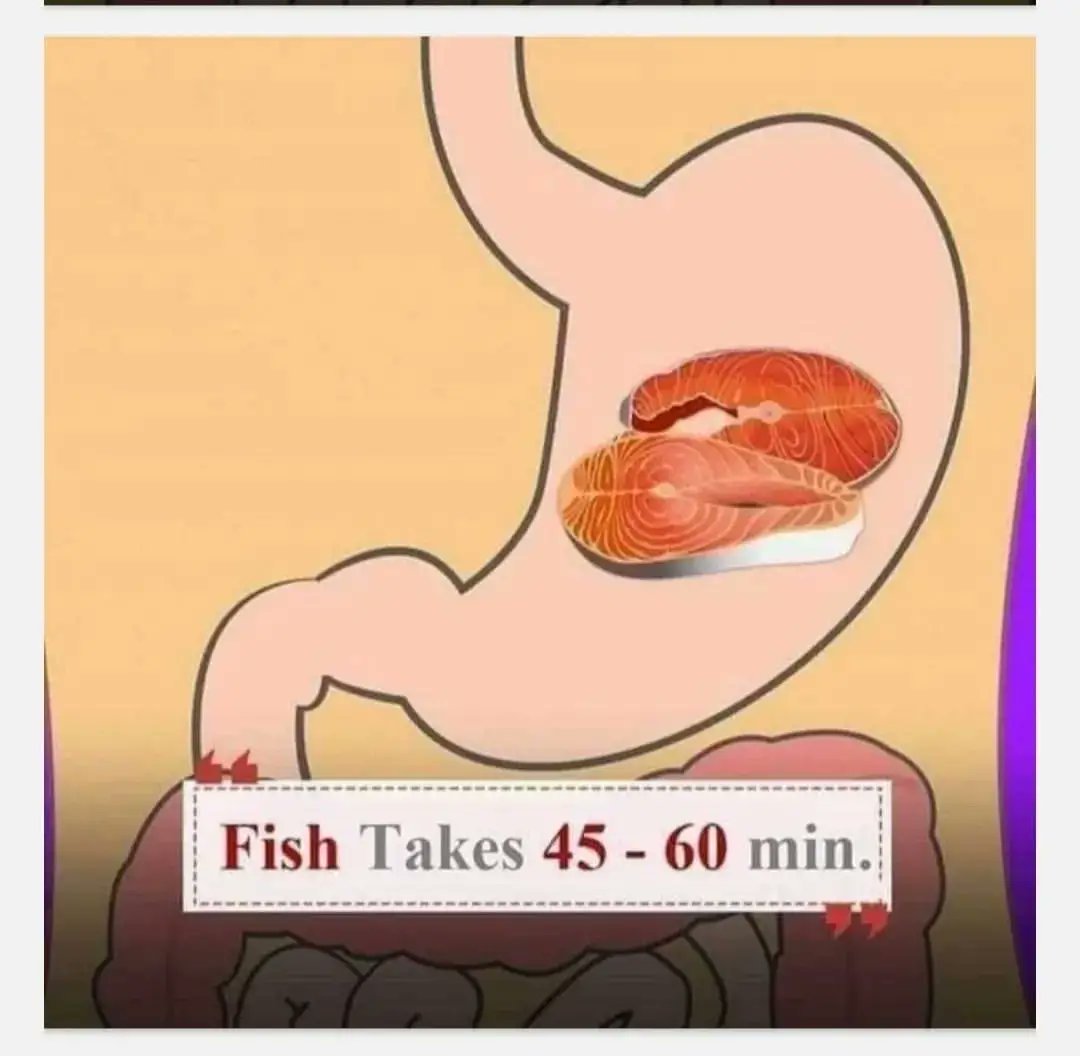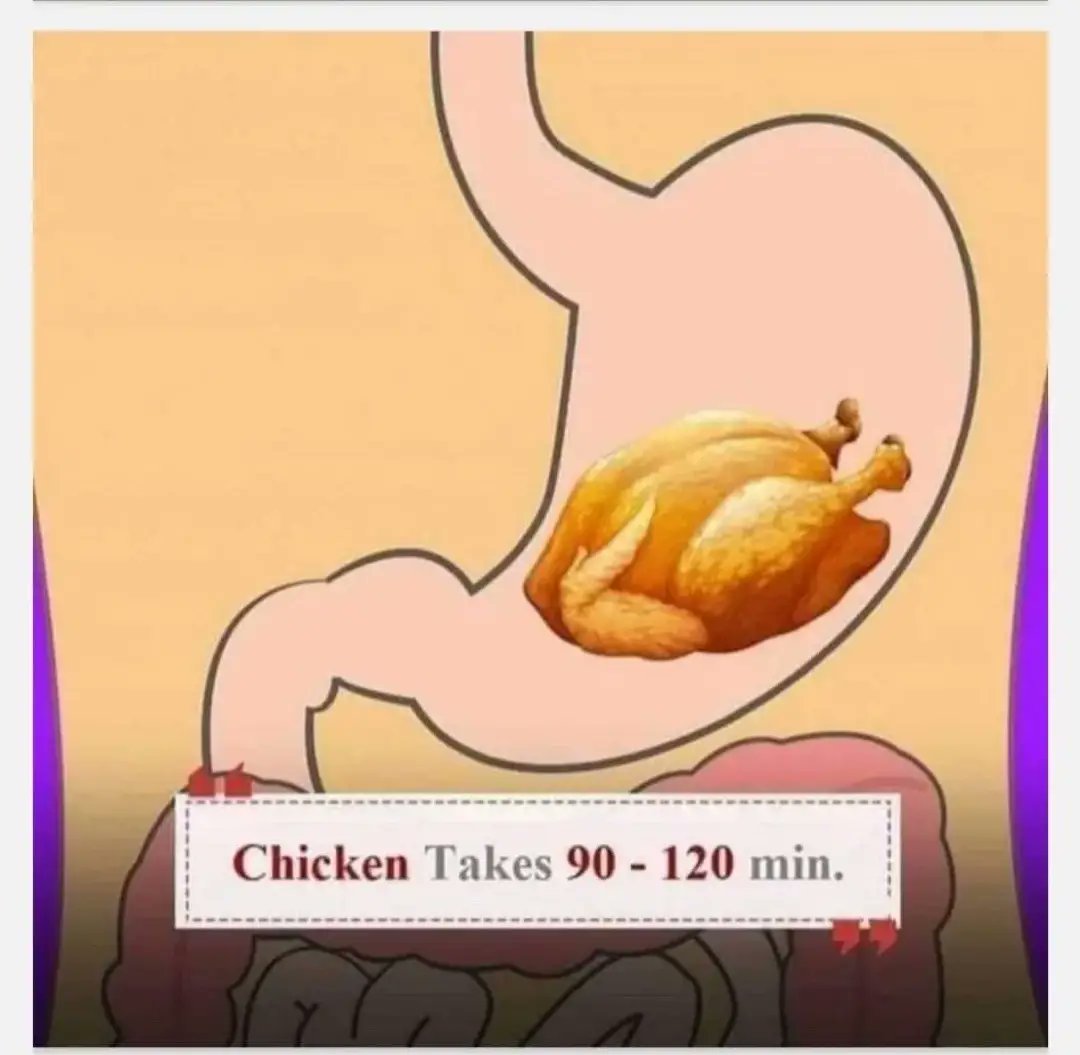Digestion is the process by which the body breaks down food into smaller molecules that can be absorbed and used for energy and other functions. It begins in the mouth, where food is chewed and mixed with saliva to begin the process of breaking down carbohydrates.
Once food is swallowed, it travels through the esophagus and into the stomach, where it is mixed with stomach acid and enzymes that further break down the food. From the stomach, the partially digested food moves into the small intestine, where enzymes from the pancreas and bile from the liver continue the process of breaking down carbohydrates, proteins, and fats.
Nutrients are then absorbed into the bloodstream through the walls of the small intestine and transported to the liver for processing and distribution to the rest of the body. Any undigested waste products pass into the large intestine, where water is absorbed, and the remaining waste is eliminated as feces. The time it takes to digest food can vary depending on several factors, including the type of food, the amount consumed, and the individual’s digestive system. In general, most food is digested within a few hours after consumption, although the exact time can vary depending on the factors mentioned above.
The process of digestion is essential for providing the body with the nutrients it needs to function properly. A healthy diet that includes a variety of nutrient-dense foods is essential for optimal digestion and overall health.
1. Beef Meat
The digestion of beef meat typically takes several hours, but the exact time can vary based on a number of factors, including the individual’s digestive system, the amount and type of food consumed, and other factors such as age and activity level. In general, the digestion process for beef meat starts in the mouth, where the mechanical process of chewing and the release of digestive enzymes in saliva begins to break down the food. Once the beef meat is swallowed, it travels down the esophagus and enters the stomach, where it is further broken down by stomach acid and digestive enzymes.
After several hours, the partially digested beef meat moves into the small intestine, where more enzymes are released to further break down the food and nutrients are absorbed into the bloodstream. The remaining waste products then pass into the large intestine, where water is absorbed and the solid waste is eventually eliminated as feces. Salted Nut Roll Shot – The Perfect Recipe
Overall, the digestion of beef meat can take anywhere from several hours to a few days, depending on various factors. It’s worth noting that a diet high in protein, such as one that includes a lot of beef, can take longer to digest than a diet that is high in carbohydrates or fats.
2. Fish
The time it takes to digest fish varies depending on several factors, including the type of fish, the individual’s digestive system, and the other foods consumed along with the fish. Fish is typically easier to digest than beef or other types of meat, because it is lower in fat and connective tissue. It is also a good source of protein, vitamins, and minerals, making it a healthy addition to the diet.

In general, fish can take anywhere from 30 minutes to several hours to digest, depending on factors such as the cooking method, the size of the fish, and the individual’s digestive health. Fish that is cooked in a way that makes it more tender, such as poaching or steaming, may be easier to digest than fish that is fried or grilled, which can be tougher and take longer to break down.
Overall, fish is a healthy and nutritious food that is relatively easy to digest, but the exact time it takes to digest can vary depending on a range of factors.
3. Cooked Vegetables
Cooked vegetables are a healthy and nutritious addition to the diet, and their relatively easy digestibility makes them a good option for people with sensitive digestive systems. Most cooked vegetables are relatively easy to digest, as cooking softens the vegetable fibers and breaks down the cell walls, making it easier for digestive enzymes to access the nutrients within. The cooking process can also help to break down some of the anti-nutrients found in raw vegetables, which can interfere with nutrient absorption.
The exact time it takes to digest cooked vegetables will depend on the individual and the specific type of vegetable. For example, vegetables that are high in fiber, such as broccoli or kale, may take longer to digest than those that are lower in fiber, such as carrots or green beans. Similarly, some people may have more efficient digestive systems than others, which can affect digestion times.
In general, however, most cooked vegetables will be digested within 15min to some hours after consumption. The vegetables will first pass through the stomach, where stomach acid and enzymes work to break down the food. From there, the partially digested vegetables will move into the small intestine, where further enzymes will break down the nutrients and the body will absorb them. The remaining waste products will then move into the large intestine, where water is absorbed and the solid waste is eventually eliminated as feces.
4. Chicken
The time it takes to digest chicken can vary depending on several factors, including the cooking method, the portion size, and the individual’s digestive system. Chicken is a good source of protein, which can take longer to digest than carbohydrates or fats. However, the cooking method can affect the digestibility of chicken. For example, baked or boiled chicken is generally easier to digest than fried chicken, which can be higher in fat and take longer to break down.

Once chicken is consumed, it passes through the stomach and into the small intestine, where enzymes and bile from the liver and pancreas help to break down the protein and fat. Nutrients are then absorbed into the bloodstream, while the waste products pass into the large intestine and eventually eliminated as feces.
The time it takes to digest chicken can vary depending on the individual and other factors such as age, activity level, and overall health. Generally, chicken can take anywhere from 2 to 6 hours to digest, although the actual time can vary.
5. FRUITS AND VEGETABLES
The time it takes to digest fruits and vegetables can vary depending on several factors, including the type of fruit or vegetable, the ripeness, the fiber content, and the individual’s digestive system. Fruits and vegetables are relatively easy to digest because they are high in fiber, water, and other nutrients that the body can break down and absorb quickly. The high water content of fruits and vegetables can also help to speed up the digestion process.
Most fruits and vegetables will be digested within 15min to few hours after consumption. The exact time it takes to digest will depend on the individual and the specific type of fruit or vegetable. Some fruits and vegetables, such as leafy greens or cruciferous vegetables, may take longer to digest due to their high fiber content, while others, such as bananas or melons, may be digested more quickly due to their high water content.
6. NUTS
The time it takes to digest nuts can vary depending on the type of nut, the amount consumed, and the individual’s digestive system. Nuts are a good source of healthy fats, protein, fiber, and other nutrients that are important for overall health. However, they can also be difficult to digest for some people, particularly if they are eaten in large amounts or not chewed thoroughly.
The time it takes to digest nuts can vary depending on the individual and the specific type of nut. In general, however, most nuts will be digested within 180min to a few hours after consumption. Some nuts, such as almonds or cashews, may take longer to digest due to their higher fiber content. It’s important to note that some people may have difficulty digesting nuts, particularly if they have a sensitivity or allergy to nuts. In these cases, it’s important to avoid nuts or choose alternative sources of nutrients.
Note: Nuts can be a healthy and nutritious addition to the diet, but it’s important to eat them in moderation and to choose varieties that are easy to digest. Chewing nuts thoroughly can also help to aid in digestion and improve nutrient absorption.
7. DAIRY PRODUCTS
The time it takes to digest dairy products can vary depending on the type of dairy product, the amount consumed, and the individual’s digestive system. Dairy products such as milk, cheese, and yogurt are a good source of protein, calcium, and other important nutrients that are important for overall health. However, some people may have difficulty digesting lactose, a sugar found in milk and other dairy products, leading to digestive discomfort such as bloating, gas, and diarrhea.

The time it takes to digest dairy products can vary depending on the individual and the specific type of dairy product. In general, most dairy products will be digested within 120min to a few hours after consumption. However, if lactose intolerance is present, the digestion time may be longer and accompanied by digestive discomfort. Mississippi Milkshake – What is it and how to make it
Overall, dairy products can be a healthy and nutritious addition to the diet for those who can tolerate them. For those who are lactose intolerant or have difficulty digesting dairy products, alternative sources of calcium and other nutrients should be considered.
8. WATER
Water is absorbed almost immediately upon consumption and does not require significant digestion. Once consumed, water is rapidly absorbed from the stomach and small intestine into the bloodstream, where it is transported to various organs and tissues to support bodily functions.
The absorption of water can be influenced by various factors such as temperature, composition, and volume of water consumed, as well as an individual’s age, health status, and hydration level. However, in general, water is absorbed very quickly, and any excess water that is not needed by the body is eliminated as urine within a few hours. It’s important to note that drinking enough water is essential for overall health and hydration. Dehydration can lead to a range of health issues such as fatigue, headaches, constipation, and decreased cognitive function. Therefore, it’s recommended that individuals consume adequate amounts of water daily to maintain optimal hydration levels and support overall health.
9. POTATOES
Potatoes are a good source of carbohydrates, fiber, and various vitamins and minerals that are important for overall health. They are commonly consumed in various forms, including boiled, mashed, baked, fried, and roasted. The time it takes to digest potatoes can vary depending on the individual and the specific preparation method. In general, boiled or mashed potatoes are easier to digest than fried or roasted potatoes due to their lower fat content. Potatoes that are eaten with the skin on may take longer to digest due to their higher fiber content. Kikurage – What is it and How to Make the Mushroom
Most potatoes will be digested within 90min to a few hours after consumption, although the exact time can vary depending on the factors mentioned above. In general, potatoes are considered to be relatively easy to digest and are a good source of energy and nutrients. However, it’s important to note that some people may have difficulty digesting potatoes, particularly if they have a sensitivity or allergy to potatoes or other nightshade vegetables. In these cases, it’s important to avoid potatoes or choose alternative sources of nutrients.
NOTE: This is a Complete Digestion cycle. The time it takes to digest food can vary depending on several factors, including the type of food, the amount consumed, and the individual’s digestive system.